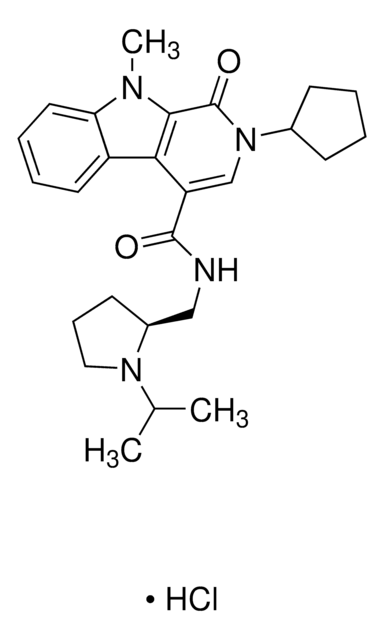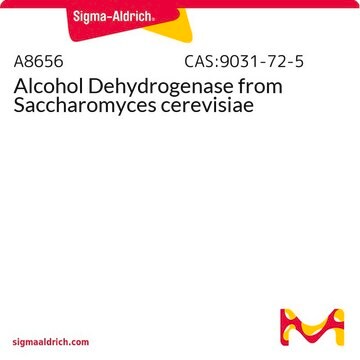T2000000
Trifluoperazine hydrochloride
European Pharmacopoeia (EP) Reference Standard
Sinónimos:
Trifluoperazine dihydrochloride, 10-[3-(4-Methylpiperazin-1-yl)propyl]-2-(trifluoromethyl)-10H-phenothiazine dihydrochloride
About This Item
Productos recomendados
grado
pharmaceutical primary standard
familia API
trifluoperazine
fabricante / nombre comercial
EDQM
mp
243 °C (dec.) (lit.)
aplicaciones
pharmaceutical (small molecule)
formato
neat
temp. de almacenamiento
2-8°C
cadena SMILES
Cl[H].Cl[H].CN1CCN(CCCN2c3ccccc3Sc4ccc(cc24)C(F)(F)F)CC1
InChI
1S/C21H24F3N3S.2ClH/c1-25-11-13-26(14-12-25)9-4-10-27-17-5-2-3-6-19(17)28-20-8-7-16(15-18(20)27)21(22,23)24;;/h2-3,5-8,15H,4,9-14H2,1H3;2*1H
Clave InChI
BXDAOUXDMHXPDI-UHFFFAOYSA-N
Información sobre el gen
human ... DRD2(1813) , DRD3(1814) , DRD4(1815) , HTR2A(3356) , HTR2C(3358)
¿Está buscando productos similares? Visita Guía de comparación de productos
Descripción general
Aplicación
Envase
Otras notas
Palabra de señalización
Danger
Frases de peligro
Consejos de prudencia
Clasificaciones de peligro
Acute Tox. 4 Oral - Aquatic Acute 1 - Aquatic Chronic 1 - Eye Irrit. 2 - Muta. 2 - STOT RE 1 - STOT SE 3
Órganos de actuación
Central nervous system, Eyes
Código de clase de almacenamiento
6.1C - Combustible acute toxic Cat.3 / toxic compounds or compounds which causing chronic effects
Clase de riesgo para el agua (WGK)
WGK 3
Punto de inflamabilidad (°F)
Not applicable
Punto de inflamabilidad (°C)
Not applicable
Choose from one of the most recent versions:
Certificados de análisis (COA)
Sorry, we don't have COAs for this product available online at this time.
If you need assistance, please contact Atención al cliente
¿Ya tiene este producto?
Encuentre la documentación para los productos que ha comprado recientemente en la Biblioteca de documentos.
Nuestro equipo de científicos tiene experiencia en todas las áreas de investigación: Ciencias de la vida, Ciencia de los materiales, Síntesis química, Cromatografía, Analítica y muchas otras.
Póngase en contacto con el Servicio técnico








